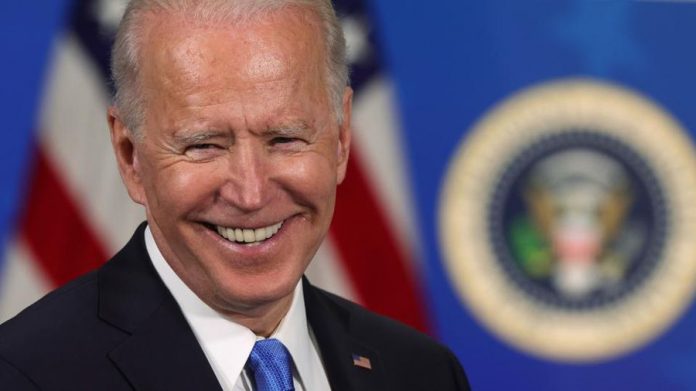President Joe Biden officially signed the third stimulus package into law on March 11. The package includes $1,400 Recovery Rebate payments (also known as stimulus checks) and White House Press Secretary, Jen Psaki, said on Thursday that Americans could start seeing direct deposits hitting their bank accounts as early as this weekend.
Individuals earning $80,000 or more, married couples filing jointly earning $160,000 or more, and heads of households earning $120,000 or more will not receive a stimulus payment. Adult dependents will receive the full $1,400 (if the taxpayer claiming them qualifies).
Stimulus check 3 calculator
To find out how much you can expect, enter some basic information into the American Rescue Plan calculator.
You’ll need to confirm that you filed a 2019 or 2020 tax return and select your filing status (single, married or head of household). You’ll also enter the number of dependents you claimed as well as your adjusted gross income from your most recent return. The tool will automatically calculate your estimated payment.
The IRS is expected to use the most recent information on file, so if you’ve already submitted your 2020 tax return, that’s the income that will be used to calculate your stimulus check.
According to CNN, Americans could start to see direct deposits hit their bank accounts very soon, as Biden is expected to sign the bill shortly after the House approves it. Those who don’t have direct deposit information on file with the IRS may be waiting a little longer for paper checks and prepaid debit cards.
Expanded tax credits for children
If your qualifying dependents happen to be children under 18, you’ll see even more money eventually, though it won’t be on the stimulus checks. For tax year 2021, tax credits for children aged 6 through 17 are being raised to $3,000 instead of $2,000, and for children through age 5 they’ll be raised to $3,600, an 80% jump.
Most parents will see this money as a reduction in taxes paid on 2021 income. They’ll get a bit more in their paychecks through the end of the year.
But parents and guardians whose income taxes would amount to less than the amounts of the maximum child tax credits — for example, a single parent of two children who earns $25,000 per year — will get monthly checks of up to $300 for each child beginning later this year.












